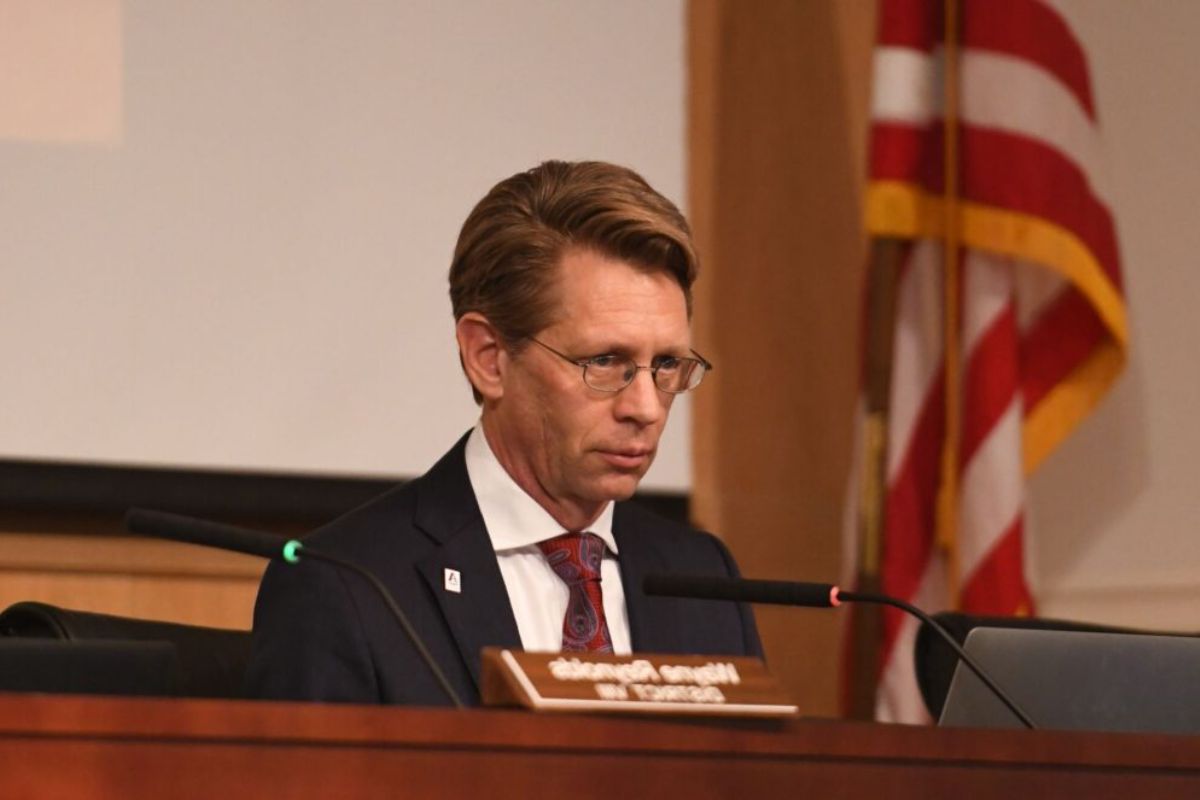Alabama State Superintendent Eric Mackey: Alabama State Superintendent Eric Mackey is urging caution in the implementation of voucher legislation, emphasizing the need for accountability and guidelines.
As school choice debates continue in Alabama, Mackey advocates for directing funds to schools through a voucher program, but also stresses the importance of guardrails to regulate scholarship stacking.
In an ongoing effort to balance school choice options, Mackey’s statements reflect a measured approach towards ensuring quality education in the state.
Key Takeaways
- Mackey proposes revisions to the Alabama Accountability Act, including caps on the number of students eligible for vouchers and redirecting funds to public schools.
- Governor Ivey and legislators are considering education savings accounts as an alternative to vouchers, with a focus on finding comprehensive solutions.
- Mackey advocates for responsible allocation of funds through a voucher program, emphasizing accountability through state tests and clear guidelines for fund distribution.
- Mackey calls for establishing guardrails to regulate scholarship stacking, ensuring funds are used for their intended purpose and setting limits on scholarship funds.
Alabama Superintendent Urges Legislative Changes to Accountability Act
The Alabama state superintendent, Eric Mackey, calls for revisions to the Alabama Accountability Act (AAA) in order to improve its effectiveness and address concerns. Mackey emphasizes the need for legislative changes during a meeting of the Alabama State Board of Education.
His focus is on incorporating caps, accountability measures, and directing funds to schools rather than parents. Mackey believes that implementing caps on the number of students eligible for vouchers will ensure that resources are distributed equitably among schools.
He also stresses the importance of accountability measures, such as requiring participating schools to demonstrate academic improvement. In addition, Mackey suggests redirecting funds from vouchers to public schools, as he believes this will have a greater impact on overall student achievement.
These proposed revisions aim to enhance the effectiveness of the AAA and address the concerns raised by stakeholders.
School Choice Debates Continue: Governor Ivey and Legislators Eye New Options
Governor Ivey and legislators in Alabama are actively considering new options for school choice, continuing the ongoing debates in the state.
One of the options being considered is the introduction of education savings accounts, which would provide families with funds that they can use for various educational expenses, including private school tuition. This proposal is seen as a potential alternative to the current voucher program, which Alabama State Superintendent Eric Mackey has urged caution against.
Mackey believes that it is important to direct funds directly to schools rather than providing parents with vouchers.
The discussions during the upcoming legislative session will likely focus on finding comprehensive solutions to address the school choice issues in Alabama.
As the debates continue, it is crucial for policymakers to consider the potential impact of these new options on the education system and ensure that all students have access to quality education.

ALSO READ: Coastal Alabama Community College Board Approves President
Directing Funds to Schools: Mackey Advocates for Voucher Program with Guidelines
Alabama State Superintendent Eric Mackey advocates for a voucher program with specific guidelines to ensure responsible allocation of funds, emphasizing the need for accountability through state tests. He proposes that educational dollars should not be sent directly to parents as checks or debit cards, but rather be directed to schools with clear guidelines in place. This approach would allow for greater oversight and ensure that the funds are used effectively to improve education outcomes. To illustrate the importance of responsible allocation of funds, the following table highlights the potential impact of a voucher program with guidelines. It compares the percentage of students achieving proficiency in state tests before and after the implementation of the voucher program. The data clearly demonstrates the potential positive effect of implementing such guidelines in directing funds to schools.
| Before Voucher Program | After Voucher Program | |
|---|---|---|
| Proficiency (%) | 60% | 75% |
Addressing Concerns: Mackey Calls for Guardrails to Regulate Scholarship Stacking
Mackey emphasizes the need for specific guidelines to regulate scholarship stacking in voucher legislation.
Scholarship stacking refers to the practice of combining multiple scholarships or voucher programs to cover the full cost of private school tuition. While the Alabama Accountability Act (AAA) allows eligible students to receive scholarships for private schools, there are concerns that multiple voucher programs could result in students receiving an excessive amount of scholarship funds.
To address these concerns, Mackey calls for guardrails to be established. These guidelines would help regulate scholarship stacking by setting limits on the total amount of scholarship funds a student can receive and ensuring that the funds are used for their intended purpose.

Ongoing Debate: Mackey’s Statements Reflect Balancing School Choice in Alabama
The ongoing debate surrounding school choice in Alabama is characterized by differing opinions on how to balance educational options and ensure accountability.
Alabama State Superintendent Eric Mackey has emerged as a key figure in this debate, advocating for a cautious approach to school voucher. Mackey emphasizes the need for financial responsibility, accountability, and support for schools in any policy changes.
While school choice proponents argue that vouchers provide families with greater educational options, opponents express concerns about the potential negative impact on public schools and the lack of accountability for private schools receiving public funds.
As the legislative session approaches, the discussions around amendments to the Alabama Accountability Act (AAA) will continue to shape the education policy landscape in the state, with Mackey’s statements reflecting the ongoing efforts to strike a balance between school choice and accountability.
Conclusion Of Alabama State Superintendent Eric Mackey
Alabama State Superintendent Eric Mackey is urging caution in the implementation of voucher legislation. He is advocating for guidelines and guardrails to ensure accountability and prevent scholarship stacking. While school choice debates continue in the state, Mackey’s statements reflect a need to balance the interests of school choice with the need for strong educational outcomes in Alabama.
Our Reader’s Queries
Who is the state superintendent of Alabama?
Eric Mackey serves as the State Superintendent of Education at the Alabama State Department of Education.

